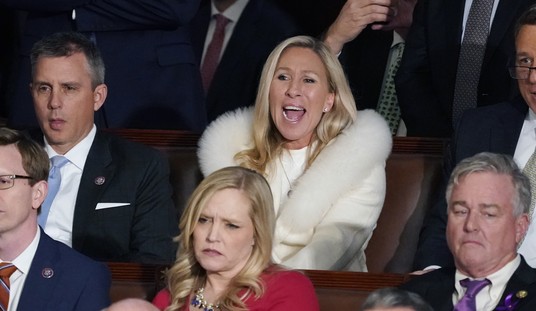If America is in a trade war, the question to ask is, are we tired of winning yet?
"Donald Trump reaps $50bn tariff haul as world 'chickens out,'" reads the Financial Times headline.
"Only China and Canada have retaliated against US president's tariff war," FT's subhead adds.
"In the Trump-dominated global economy, the U.S. gets plenty but gives nothing in return," reads a rueful post on X from Axios -- another publication with an upmarket readership -- promoting an article titled "Trump trade deals prove access to the U.S. still matters above all else."
Populist publications have a different take:
"Trump's trade deal bloc -- let's call it The Free World," writes Breitbart's John Carney on X, includes "57% of global GDP," "40% of total global trade in goods" and "18% of the world's population."
The president has only been back in office six months. His tariffs haven't even been in place that long, but already the results are undeniable.
At a time when there otherwise seems no end to federal deficits, Trump's trade policy put the federal government in the black for the month of June, with an unexpected $27 billion surplus -- and, as it happens, about $27 billion in tariff revenue.
It's one thing that President Trump so often surprises political opponents who underestimate him at election time and don't understand his appeal.
What's more remarkable is Trump seems to defy the very laws of economics -- or rather, the law as laid down by economists.
Other social sciences have lately lost credibility thanks to a "republication crisis" that shows how the results reported in leading journals all too often fail to be repeated when experiments are conducted afresh and data are re-examined.
Will the economics profession -- whose mainstream is fervently in favor of free trade and convinced tariffs are madness -- face a similar reckoning for getting this wrong?
Trump can do what theorists say is impossible because he approaches trade the way he conducts business: as a negotiation, where leverage is what counts.
Precisely because the United States has such an enormous trade deficit with the rest of the world -- amounting to more than $918 billion in 2024 -- other nations depend on access to our market as an outlet for their goods.
The size and wealth of the American consumer base is unmatchable, and countries that are cut off from it can't easily make up the difference somewhere else.
Whole industries in Europe and Asia would collapse without access to the American consumer.
President Trump is willing to give them access -- for a price.
Instead of imposing crippling tariffs to exclude foreign goods altogether, Trump is willing to strike a deal with anyone to allow goods to be sold in America at a price that makes the trade worthwhile for Americans and foreign companies alike.
The hitch is that the deal has to be on terms favorable to American workers and industry.
The president's arrangement with the European Union levies a 15% tariff on most EU goods, but that's peanuts compared to the 30% Trump was threatening if Europe didn't cooperate.
The deal calls for new European investments of $600 billion in America, as well as for EU members to buy more energy and more military equipment from us.
The 15% tariff is higher than European producers were paying before Trump returned to the White House: high enough that American producers will get some protective advantage, but not so high foreign companies won't be able to compete.
That's crucial because competition is what keeps prices down for our consumers.
Foreign firms cannot easily "pass on" a tax on their goods -- which is what a tariff is -- to the Americans who purchase their products when those same Americans can buy from domestic producers instead.
The modest protection a 15% tariff affords gives more investors here at home a reason to put their capital into U.S. companies -- which is good for our workers and consumers alike.
It means more jobs and more goods; more money in Americans' pockets and more stock on the shelves, which keeps prices down.
There's risk in all this, but the upside opportunities are much greater, as entrepreneurs here and abroad recognize.
For the Europeans, it's a no-brainer: the American market is so rife with profit possibilities that a 15% access fee is just a modest cost of doing business.
American businesses should recognize their opportunity as well: they're native to a market the entire world is desperate to be in and should take the fullest advantage of that -- by investing at home and making the sales that foreign firms are so eager to make here.
In this trade war, all Americans are winning, except perhaps the mental prisoners of the Ivory Tower.
Join PJ Media VIP and use the promo code FIGHT to get 60% off your VIP membership!









Join the conversation as a VIP Member